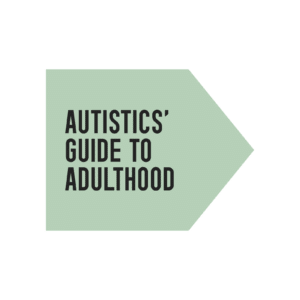Support for autistic adults
If you’re an autistic adult, or you have an older child or partner that is autistic, you’re not alone – there are hundreds of thousands of autistic adults across Australia.
Just like anyone, as an autistic adults you may desire a network of people to enrich your life, and whether diagnosed as a child or later in life, you may desire support at certain stages of your life.
The federal, state and territory governments, as well as your local autism associations, provide a range of support services that can help you navigate your life as an autistic adult.
Services
There are a range of support, services and funding sources available to autistic adults – including employment, accommodation and housing, interest groups, tertiary education, health and wellbeing and more that you may like to access.
These services can often be funded through the NDIS, your state or territory government, or may be offered without any cost.
Contact your local state or territory autism association for more information about local services you may be able to access.
I am: an autistic adult.
I did not ‘outgrow’ my autism. My autism is genetic.
I am not someone that requires fixing.
I want more than tolerance and acceptance.
I am autistic but I am also a parent, a passionate advocate, a researcher, and an administrator.
I am nurturing, creative, law-abiding, loyal, and dependable.
I want to be celebrated and valued for who I am.
Accommodation and housing
There are many autistics that live independently. In addition, there are a range of housing options and support services to help support autistics and people with other disabilities to find desired and affordable housing, and tailored supports to suit their needs.
There are a range of types of accommodation and housing options that you may access which include:
- Living in your own home, or the family home, with or without in-home support;
- Living in supported rental housing;
- Living in specially adapted, modified homes; or
- Living in a share house or group accommodation specifically for autistic adults or adults with different disabilities.
Autistic adults may also be eligible to access in-home support, which can provide long-term care for adults who desire support to live in their own or family home.
Supported Independent Living (SIL) support often includes full time support, in and out of the home, regardless of home ownership. The support can be independent, or provided for people in shared living arrangements.
Accommodation and housing support can be found across Australia, and are often operated by private businesses or disability service providers. Funding is often provided through government organisations such as the NDIS.
The Autism support and services in the community page has more information about accommodation and housing.

Day options
Most state and territory autism associations offer an active, varied and routine based day program from Monday to Friday during school terms for adults looking to develop life skills while having fun and socialising.
Successful engagement in these groups is facilitated through assessment of group suitability and staff ratio. For further information speak to your General Practitioner, Occupational Therapist, or contact your state or territory autism association.
Recreation, social and interest-based groups
There are several social and interest-based groups designed specifically for autistic adults.
These groups are a great way to support your strengths and interests, while also providing you with an opportunity to meet others, develop friendships and explore shared interests. Joining a group can also have a positive impact on your mental health and self-esteem, and can get you more involved with your local community.
Interest groups include swimming, yoga, healthy cooking, train spotting, gem and mineral collecting, bushwalking, music, games, photography, art or social groups that take part in local events and activities, and so much more.
To find out what groups are happening around you, you can look in the local newspaper, council website page, or a web search would be very useful.
The Autistics Guide to Adulthood has a free online module on Entertainment, Recreation and Leisure that you can work through. This will develop your understanding on all the different types of groups available, how to choose one that suits your needs and helps you navigate joining groups.
Across Australia, autism service providers also often facilitate social groups for autistic adults. Activities can include workshops on particular topics, general socialising, going to the movies, having dinners or taking part in local events. Contact your local autism association for more information.

宣传
Advocacy can be a support tool for you as an autistic adults. It can be used to help you express your views, to use information and services, to find out about options and make decisions, and to make sure your rights are respected.
The Autistics Guide to Adulthood has a free online module on Self-Advocacy that you can work through. The module guides you through advocating for your self and others.
Independent advocacy organisations provide advocacy services, using both paid staff and volunteers.
You might want to access support from an advocacy service to help you if you are:
- looking for somewhere to live or moving house;
- looking for or keeping a job;
- making friends, being part of your community and planning how you want to live your life; or
- using health, social care or voluntary sector services.
The national organisation directly representing autistic people and their families in Australia is Autism Asperger’s Advocacy Australia. They regularly develop and promote national policy, and reports on outcomes.
To find out more about advocacy, visit the Autism support and services in the community page.
Tertiary study support
If you’ve left school, you might like to consider pursuing further education – either at a university, TAFE, or a private education college.
Most university and TAFE campuses have support staff that can support autistic people and support students to access any reasonable adjustments they may require for their study.
They can work with you to develop a plan that outlines what learning supports your university or TAFE can put in place for you. You can ask for your plan to be reviewed or changed at any time.
The Autistics Guide to Adulthood has a free online module on Education that you can work through. The module guides you through the different higher education options in Australia, and provides information on how to get the support you need to be successful.
The Getting Ready for Uni website and Australian Disability Clearing House on Education and Training website also contain lots of useful information about support for students in tertiary education.

Finding a job
You may have some characteristics that make you highly suited to certain types of work or professional roles – a love of order and tidiness, attention to detail, good factual knowledge for concrete concepts, and a good memory, are very useful skills in a number of industries.
However, you may have found it difficult to find employment that you desire.
There are options available to help you find and maintain work.
The Autistics Guide to Adulthood has a free online module on Employment that you can work through. The module guides you through the different employment types in Australia, choosing an option that suits your needs, and provides you with useful information about getting and keeping a job.
Another good place to start is consulting with an organisation that specialises in disability employment.
School Leavers Employment Support (SLES) is an early intervention approach for Year 12 school leavers. It’s designed to support your transition from school to employment.
There are a range of programs, often run by autism or disability service providers that can help young people prepare for, look for, and gain, employment. They work with you to provide meaningful, individualised capacity building activities so you can achieve your employment goals.
Contact your local autism service provider for more information.
For eligible participants, Disability Employment Service (DES) providers offer a range of services to support individual needs, including:
- Help to prepare for work, including training in specific job skills;
- Job-search support, such as résumé development, training in interview skills, and help in looking for suitable jobs;
- Support when initially placed into a job, including on-the-job training and co-worker and employer support;
- Ongoing support in a job if required;
- The purchase of vocational training and other employment related assistance; and
- Access to help with workplace modifications; support services; and Auslan interpreting in the workplace.
You can find more information about Disability Employment Services on the Services Australia website. To locate Disability Employment Services in your local area use this search directory.

Relationships
Whether it’s making friends, talking to work colleagues or finding love, building positive relationships is an important skill that you can seek support to work on and develop.
Making friends
If you are an autistic adult, you might find it difficult to make and maintain friends. But with some support, and time spent learning about social interactions and helpful social skills, you may develop skills to form new relationships.
The factsheet, Friends versus Friendly, is a useful resource if you’re interested in making, or keeping friends.
The Autistics Guide to Adulthood has a free online module on making and maintaining Friendships that you can work through to develop confidence in this area.
Topics covered in this module include;
- Types of friendship
- How to form friendships
- Establishing boundaries
- Honesty and respect
Joining social and interest groups are another great way to meet new people and develop friendships. Whether you like swing dancing, ten pin bowling, cycling, or something else, there are a wide range of social interest groups that welcome new members! You can learn more about joining groups in the Autistics’ Guide to Adulthood, Entertainment, Recreation and Leisure module.
Romantic relationships
Most humans crave companionship and intimacy, what this looks like, varies from person to person.
Many autistic adults have positive characteristics that are seen as big assets in relationships – like loyalty, reliability, honesty, commitment and punctuality.
But, you might also find that differences in social and sensory processing, understanding others and expected behaviour, reading another person’s reactions and intentions, controlling anxiety and flexibility may impact your capacity to be in a romantic relationship.
If you’re interested in developing a romantic relationship with someone, visit the Autistics’ Guide to Adulthood and complete the Romantic relationship module.
Topics covered in this module include;
- What to expect
- Different types of relationships
- Maintaining a relationship
- Safety and consent
You may also wish to access a counsellor, a psychologist, or service provider to develop an understanding of what is involved in having an intimate relationship, and the skills needed to develop and maintain relationships.
Health and wellbeing
As an autistic person you may need more support when it comes to looking after your health and wellbeing.
Research shows that for people on the autism spectrum and co-occurring conditions such as epilepsy, chronic physical illness, and intellectual disabilities, looking after your physical health is incredibly important.
Looking after your mental health is also important, as mental challenges and conditions can be more common for people on the autism spectrum than for those in the general population, and can be overlooked.
Research shows that autistic people have a higher prevalence of mental health conditions than the general population, and depression, specific phobias, social and general anxiety and obsessive-compulsive disorder are also particularly common in younger autistic adults.
Co-occurring conditions can also be common in autistic adults too, and may increase an individual’s vulnerability to some mental health disorders. Approximately 20 to 25 per cent of autistic people have epilepsy, which is also associated with depression, anxiety and psychotic disorders.
All Australians, including those on the autism spectrum, have the right to access high quality and safe healthcare. It is recommended that you make regular appointments with your GP to check up on your physical and mental health.
The Autistics’ Guide to Adulthood is a great resource to help you support both your physical and mental health through the modules Physical Health and Mental Health.
The Physical Health module covers;
- Benefits of exercise
- Group versus solo exercise
- Setting fitness goals
- Getting support
The Mental Health module covers;
- Steps to good mental health
- Risk factors
- Signs and symptoms
- Health care support
Additionally, the Autism CRC has developed a factsheet outlining your rights to quality and safe healthcare, or visit our support in the community page for more information.
Autistics’ Guide to Adulthood
Autistics’ Guide to Adulthood is an online life-skills resource to support people to achieve their goals. It’s free and available to anyone who would like to learn more about adulthood.
Click here to learn more about this resource.




